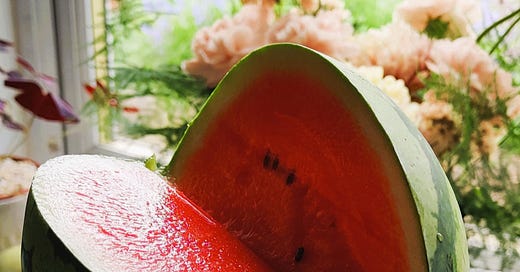Hi friends,
The day before the US election, I met up with my Arvon non-fiction cohort for a two-hour online workshop on the political power of the personal essay. Our tutor, Cal Flyn, had sent us a piece by American critic Wesley Morris which just so happened to have been published during the final months of Trump’s presidency. It was called My Mustache…




